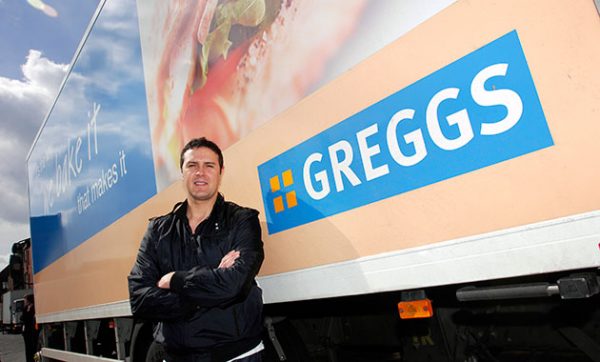Leading baker, Greggs plc has installed new route optimisation software from Paragon, and is embarking on a national roll-out of Paragon-optimised routes and schedules as part of a major review of its fixed route operations. This follows the successful implementation of its first set of Paragon routes at its Manchester bakery, which saved 8 vehicles and yielded annual transport savings estimated at £200,000.
Greggs specialises in sandwiches, savoury products and sweet lines and today has a fleet of 250 vehicles delivering to over 1,100 stores in the UK. The company introduced Paragon Multi Depot software – which enables multiple depots to be planned centrally – in order to drive operational efficiencies and help achieve Gregg’s goal to become recognised as Europe’s finest retailer of bakery-related products.
Paragon was selected following a detailed review of the available software solutions, “as it stood head and shoulders above the competition in meeting our demanding requirements,” confirms national logistics project manager, Paul Duggan.
Complex deliveries
Greggs currently operates 12 central bakeries, each of which supplies around 100 shops via fixed routes. “For us, distribution is a complex process.” explains Duggan. “We deliver everything that the shops sell, so our delivery patterns include frozen, chilled and ambient produce.
“Previously we distributed everything overnight, with products leaving the bakeries as soon as they emerged from the ovens at around 3.00am and reaching each store by 7.00am. As a result, such a tight time window demanded a very large fleet of trucks.”
With the introduction of Paragon’s route optimisation software, Greggs has been able to reassess its delivery patterns and develop a more cost-effective distribution strategy. As Duggan explains: “We have used Paragon to double- shift the vehicles. Thus, during test runs of the project in Manchester we were able to distribute fresh produce overnight, while chilled and frozen produce were delivered throughout the day.”
Following the Manchester trial, Greggs has been able to reduce its fleet size by eight trucks and expects to save over £200,000 annually. As a result, it is looking to roll the project out on a national scale. “Paragon has been the primary tool used to implement the programme, so it really is a vital piece of kit for us,” confirms Duggan.
Additional Benefits
In addition to the fixed route reviews undertaken to-date, Paragon is also used for strategic route planning. As Duggan explains: “When we want to look at our existing routes and see if they are efficient, or where savings can be made, we run them through Paragon. The software can also be used to determine the additional transport costs related to new store locations. Using Paragon has made a big difference to my job in particular and has also saved money by removing inefficient routes.”
Duggan has been very impressed with Paragon’s software: “Not only is it able to handle all the different temperature zones we work with, it is also able to asses whether shops are being serviced by the right central bakery, helping us to improve utilisation,” he says. “It has also improved our delivery reliability as we are able to ‘sense check’ any routes that drivers advise us are especially problematic.”
Paragon’s marketing and business development director, Charles Nockold, agrees and adds: “Paragon is making a real difference to the way in which Greggs operates. Bakery distribution is particularly difficult due to the high level of delivery restrictions early in the day: yet, by using Paragon’s route optimisation software to overcome these problems, Greggs is already experiencing significant savings.”


